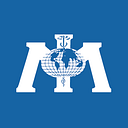Celebrating Global Handwashing Day Worldwide
Fostering a life-saving action
Since 2008, millions of people across five continents have been celebrating “Global Handwashing Day” on October 15th. The day increases awareness and understanding of the importance of handwashing with soap as an effective way to prevent diseases, and to save lives.
Hygiene promotion is integrated into all of International Medical Corps’ water, sanitation and hygiene (WASH) projects, so communities can better protect themselves from the threat of infectious diseases. Widely recognized as the most cost-effective intervention in the water and sanitation sector, simple handwashing with soap and water can reduce diarrheal disease incidence rate by nearly half and the rate of respiratory disease by about one-quarter. We promote these hygiene awareness and handwashing messages within communities, schools and health facilities to ensure that as many people as possible can access this potentially life-saving message.
Take a look back at how our programs around the globe marked Global Handwashing Day in 2018:
Nigeria
In Nigeria, we’re improving WASH in six local-government areas of Borno State, reaching more than 334,000 people. This includes improving the well-being of internally displaced persons(IDPs) and host communities through sustainable access to safe water, sanitation facilities and good hygiene practices.
In Damboa, Nigeria, we celebrated Global Handwashing Day at three primary schools. Our teams promoted the importance of handwashing in relation to food hygiene, as well as its general impact on individual and community health.
We also focused on teaching proper handwashing techniques at the schools’ designated handwashing stations. We encouraged the children to wash their hands the way they had been taught, while their teachers encouraged this as a daily habit to be followed at least before break-time every day.
In Bakassi, Nigeria, more than 400 people of all ages attended the event and activities celebrating the importance of handwashing and sanitation. Two members from the International Medical Corps WASH team gave a brief presentation on the importance of handwashing using soap and water, following it up with a practical demonstration of proper handwashing at a handwashing station.
Somalia
In Somalia, International Medical Corps supports the prevention of diseases caused by a lack of good hygiene practices as part of our comprehensive approach to healthcare. We focus on providing access to safe, clean water, providing and improving sanitation facilities and promoting safe hygiene practices within communities. Through mass-awareness campaigns and home visits, our teams raise awareness at the community level on handwashing, hygienic latrine usage, safe-water chains and solid waste disposal.
Knowing that poor hygiene increases the risk of undernutrition during a child’s first 1,000 days, our team in Jowhar focuses on the link between handwashing and nutrition. In Somalia, it is common for people to share food in a big common plate, maximizing the possibility of communicable diseases if proper sanitation practices are not followed. Our team illustrated the importance of handwashing before eating and sharing food, explaining how one person’s handwashing (or lack thereof) could affect all those they share their meal with.
Our team in Mogadishu celebrated Global Handwashing Day with more than 150 participants who were dedicated to learning handwashing techniques and sharing them with their community. We also distributed dignity kits to a number of children attending the activities.
Libya
Our current program activities support some of the country’s most vulnerable populations — including IDPs, refugees and asylum seekers — and provide relief to Libya’s fractured health system.
In Salah al-Din, Tripoli, our team focused on this year’s theme: the link between handwashing and food, including food hygiene and nutrition. We placed strong importance on keeping food safe to prevent diseases and to help children grow healthy and strong.
Sudan
In Sudan, demonstrations took place at International Medical Corps clinics across the country, actively involving over 1,000 people amongst whom were community leaders, health workers, students and young children.
The demonstrations focused upon the link between hand washing and food, with quizzes, songs and leaflets being used to ensure the information was retained long after the event.
Zimbabwe
In Zimbabwe, the day was marked across the Gwanda district with a range of activities that explained how crucial hand washing is to good health. The near 1,000 people in attendance watched tutorials, played an active part in demonstrations and took quizzes on the practices they had learnt. There was also a discussion on the importance of good hand washing practice during an outbreak of cholera and other water-borne diseases.
Yemen
An estimated 14.4 million people in Yemen currently need safe drinking water, basic sanitation and hygiene. For 8 million of those, the need is acute.
On Global Handwashing Day, our team distributed at the Al-Salam School 500 small hygiene kits that contained two soap bars, a hair comb, toothpaste, a toothbrush, one towel, one bottle of juice, one bottle of water and a Global Handwashing Day hat. The event at the school was widely attended due to the range of messaging events on offer, including songs, dances, celebrations, talks and more.
Providing adequate WASH services is a key public health challenge in today’s world — one that we are dedicated to addressing. , International Medical Corps is working to provide these most basic human needs, no matter how challenging the conditions.
Learn more about International Medical Corps
Follow International Medical Corps on Facebook, Twitter, and Instagram
Before you go… Hold down the clap button if you liked the content! It will help this post gain exposure.
